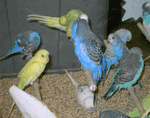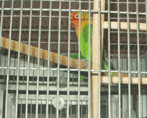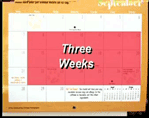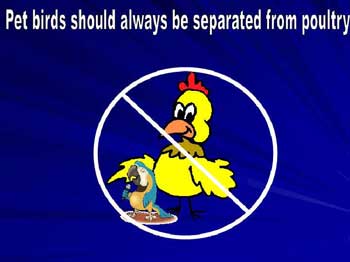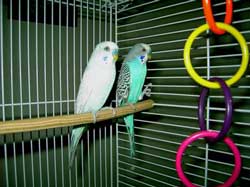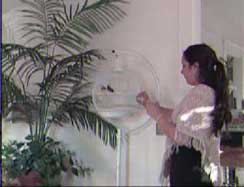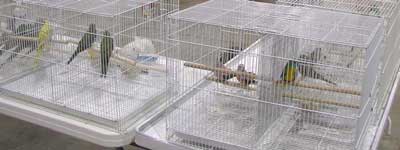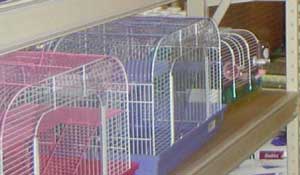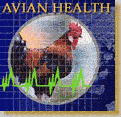 Return
to Avian Health Program Return
to Avian Health Program |
|||||||||||||||||||||||
| Biosecurity Recommendation: Isolating Birds Separate your birds as far as possible from likely sources of infection. For example, new bird additions are a source of potential infection. Keeping in mind that birds don't necessarily have to look sick to be carrying disease, it's safest to isolate a new bird to observe it for disease symptoms (signs of illness/sickness). The bird should be placed in a separate room and observed for at least 21 days (3 weeks). During this time, feeding and caring for your new bird should take place after handling your resident birds. If your new birds don't show signs of illness at the end of the isolation period, you'll know it's safe to let them join your resident birds. Different groups of birds should be separated because some birds are more susceptible to disease than others and pet birds should always be separated from poultry. |
|||||||||||||||||||||||
|
|||||||||||||||||||||||
| Sample Questions | |||||||||||||||||||||||
| 1.) Isolation of birds means: | |||||||||||||||||||||||
| a) Taking a bird for a check-up by an avian veterinarian. b) Having pictures taken of your bird. c) Separating birds as far as possible from the most likely sources of infection. d) Checking the daily behavior of your bird. |
|||||||||||||||||||||||
2.) Some disinfectants can be toxic to your birds so it is important to check with your avian veterinarian for safe disinfectants. a) True b) False |
|||||||||||||||||||||||
| What about water? | |||||||||||||||||||||||
